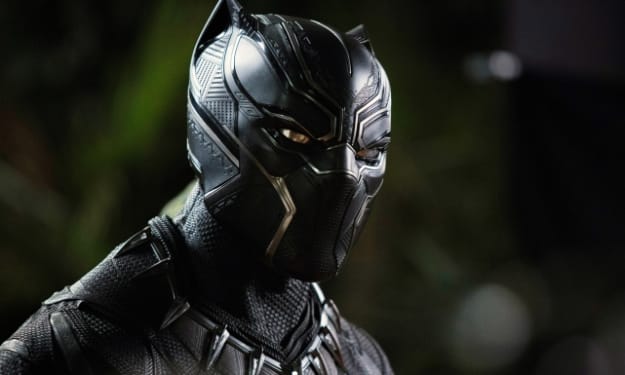Lazy or Brilliant
Is the 'dead parent' story trope worth your time anymore?

Batman, Superman, Spider-Man, King Arthur, and Luke Skywalker… what do all of these characters have in common? If you guessed silly sounding names, you are… half right. The other thing they have in common are dead parents. Yes, one or more of the parental figures that made these characters has met an untimely demise and it’s a storytelling trope that’s as old as written literature, but we can expand that since in many cases the death of the parental figure wasn’t exactly what it seemed to be; we'll call that the “Dead from a certain point of view” clause in order for this discussion to move forward.
Dead or absentee parents have been facilitating the forward momentum of heroic or semi heroic characters for a long time so I wanted to examine this literature phenomenon and figure out if this was just lazy storytelling or subtly brilliant.
Now in some cases the parents have to be gone in order for the story to work. Whenever you have an “ascending to the throne” story like King Arthur or The Black Panther, the king has to be dead for there to be a new king. Sometimes the queen gets out alive but… not always. Sometimes the character in question has to lose two sets of parents in order to take their rightful place. A key example is Luke Skywalker in Star Wars. In A New Hope he is well aware that his parents are gone, dead (from a certain point of view) and he is living with his Uncle Owen and Aunt Beru for literally his entire life. In order to get to that place, both Padme and Anakin had to be removed from the picture. Anakin was removed when he was corrupted by the Dark Side and Padme was removed by a Dark Side corrupted Anakin. He killed her. Sorry if that spoiled the prequels for you, but trust me I just did you a huge favor. Now with his birth parents removed he is dropped down with his aunt and uncle, but now they are holding him back from his destiny. How do you get around this road block? Could Luke have a well-reasoned sit down discussion detailing his reasons why he should answer the call to adventure? Nope, in order to fulfill his destiny as a Jedi Master Owen and Beru have to die because we only have two hours to get to the point. In order to ascend the parents had to (apparently) be removed.
In other cases the parental departure is intricate to the plot of placing the hero in the location where he can do the most good. Superman had to lose his parents and his planet (bit of overkill if you ask me) in order to come to earth and be adopted by humans so he would feel a strong emotional connection for our extremely fragile and squishy race. Then, as detailed in 1978’s Superman: The Movie, Paw Kent had to suffer a fatal heart attack and in order for young Clark to understand that he can’t save everyone.
Personal note, I like this better than “Let me die by a tornado so you don’t expose your powers…” demise that he had in Man of Steel because there were like a hundred ways he could have saved the elder Kent and not revealed his powers. Paw Kent dying from a heart attack—that was hardcore “There is literally nothing you could have done…” story telling. But that’s me, let’s move on.
So that’s two cases where in the death of the parents actually facilitate the character either answering the call to adventure or making hard decisions about what he can and should do.
Then… there is Batman. Oh, Batman, the constant pain in my literary pahookie. So everyone knows by now that Batman’s parents were killed by a mugger in an alleyway while young Bruce Wayne watched helplessly. I’m not spoiling anything here folks. It has been repeated in every… single… iteration… of the character ever produced for the film or television. There is an entire show on Fox dedicated to just this one trope: “How did the death of the Waynes affect young Bruce?” The reason why I have a problem with this use of the trope is that time and again, the material shows us that Bruce Wayne is a maladjusted sociopath and that’s not something that just pops in after trauma. Like, that’s something you are basically born as. Anything could have triggered (sorry for the pun) Batman. Parent's death, Alfred’s death, childhood best friend’s death, dog’s death, crushing of his pet rock, anything could have set Batman down the road of abject physical violence. The fact that it was the parents that died, and they were painted as complete saints in a city full of sinners, is just broad strokes meant to make you sympathize with the character.
But Batman, and let’s throw the Punisher in there for good measure, doesn’t move forward as a character in that they get closure. Rather, the character rides the literary fuel of this tragedy for their entire career. That’s why we constantly get the retelling of the death of their parents. It’s their defining trait, and that’s easy to write for an hour long television program or a two hour movie. It’s something the writers can easily flesh out, competency notwithstanding, and the audience can easily identify with.
Like Batman, however, the death (or removal) of the parental figures signifies a turning point for the character, a signal that the life they once led is now over and that they, and by extension the readers, are about to embark on a life changing quest either for vengeance or meaning, sometimes both. In order for the character and the story to move forward, this initial comfort zone has to be shattered with no option of return.
But is it lazy storytelling? I’ll get to that.
For a moment let’s take a look at Spider-Man, who has ridden this “dead parent” trope like it’s a roller coaster. First, his parents are dead with no other mention and he’s being raised by his Aunt May and Uncle Ben. So okay, you had the dead parents’ backstory but it doesn’t really factor in because he’s got a pair of parents right… oh, you just killed Uncle Ben… and made Spider-Man inadvertently responsible. And you gave him a catchphrase. This is actually a twist on the trope because later in comics Spidey’s parents come back from the dead and reveal they were spies and it gets weird, but the point is that the person who taught him how to be a man is dead and Spider-Man blames himself. This again mirrors Bruce Wayne’s guilt and motivation to be Batman, as well as the Punisher’s, but at the same time twists it. For Frank Castle (the Punisher) there wasn’t anything he could have done to prevent the death of his family. Bruce Wayne was literally a kid when his parents were killed. Nothing he could have done either, but Spider-Man is feeling guilty because he didn’t do anything but could have done something, and that’s an important character motivation. For Batman and the Punisher, it’s about exacting revenge and never wanting to feel powerless again. For Spider-Man, the dead parent trope informs his character by motivating him never to be flippant about his powers or responsibilities ever again. His guilt motivates him to be a hero. Is it the best reason for being a hero? Eh, I’ve heard worse.
What this all amounts to is that while the death or absence of a parent is a classic storytelling trope that can even be found in Shakespeare, it’s not lazy or brilliant. It is whatever the writer at the time uses it for. If they want a hand-wavy explanation for a character’s motive, then it’s kind of lazy. If they want to give the character depth and let him explore his feelings and why this event motivates them, then it’s kind of brilliant.
Thanks for reading.
Batman and Superman are owned by DC Comics.
Spider-Man and the Punisher are owned by Marvel Comics.
Luke Skywalker is owned by Disney/Lucas Films.
King Arthur is owned by no one (public domain, baby!).
About the Creator
Michael Bauch
I am a writer with a wide range of interests. Don't see anything that sparks your fancy? Check back again later, you might be surprised by what's up my sleeve.
You can follow me on Twitter @MichaelBauch7






Comments
There are no comments for this story
Be the first to respond and start the conversation.